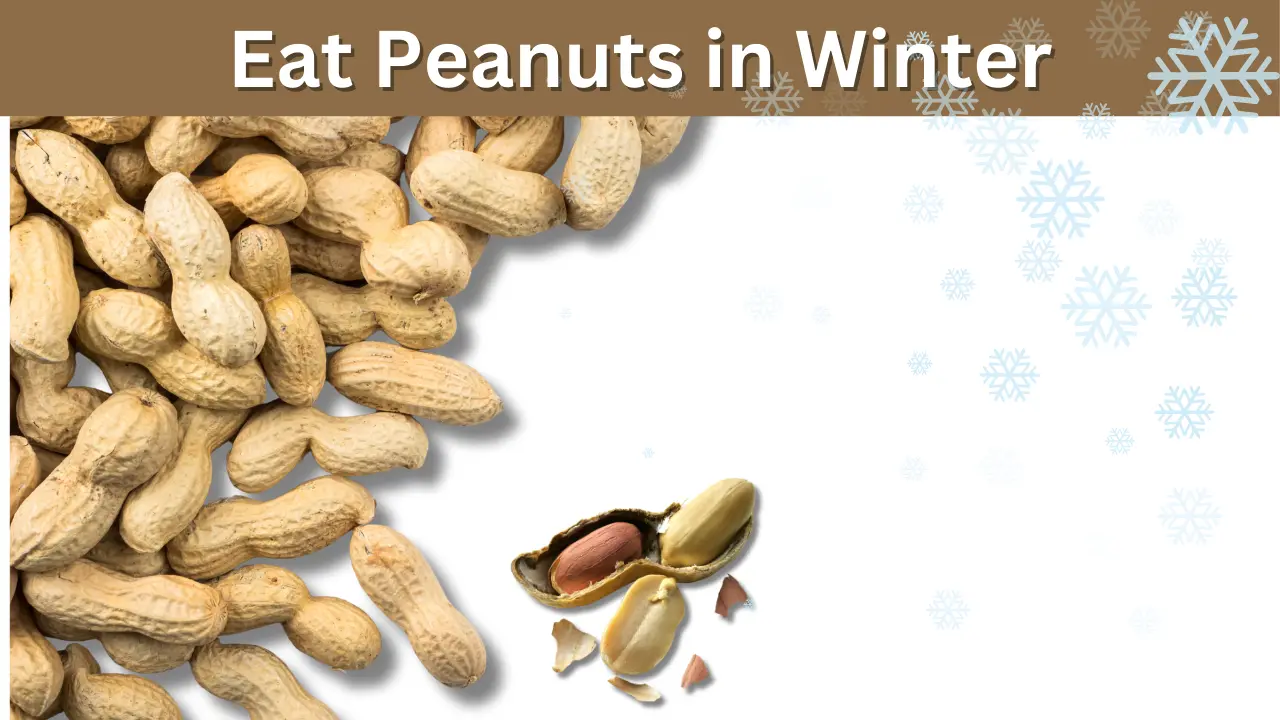Winter is the perfect season to indulge in comforting foods that keep us warm and energized. Among these, peanuts hold a special place in Indian households for their affordability, nutritional value, and delicious taste. In this blog, we’ll explore the reasons why you should eat peanuts in winter, highlighting their incredible health benefits, cultural importance, and versatility in Indian cuisine.
Peanuts, often referred to as the “poor man’s almond,” are packed with essential nutrients such as protein, healthy fats, vitamins, and minerals. This makes them not only a popular snack but also a health-boosting food that everyone should include in their winter diet.
Why Peanuts Are Perfect for Winter
1. Peanuts Provide Warmth During Winter
One of the primary reasons why you should eat peanuts in winter is their ability to provide warmth to the body. In Indian tradition, peanuts are considered a warming food, meaning they help generate heat internally. This property is particularly beneficial during the cold months, as the body needs extra warmth to maintain optimal functioning.
Peanuts are calorie-dense, which means they provide the energy your body requires to combat the winter chill. Whether consumed as roasted peanuts or in the form of peanut chikki, they offer a natural way to stay cozy and active.
2. Boosts Immunity
The antioxidants and vitamins present in peanuts make them an immunity-boosting powerhouse. Vitamin E, found in peanuts, protects the body’s cells from oxidative stress, while zinc plays a crucial role in supporting a healthy immune system. During winter, when illnesses like colds and flu are common, consuming peanuts regularly can help strengthen your body’s defenses.
In addition to these nutrients, peanuts contain magnesium and niacin, both of which are vital for overall health and energy production.
3. Rich in Protein and Energy
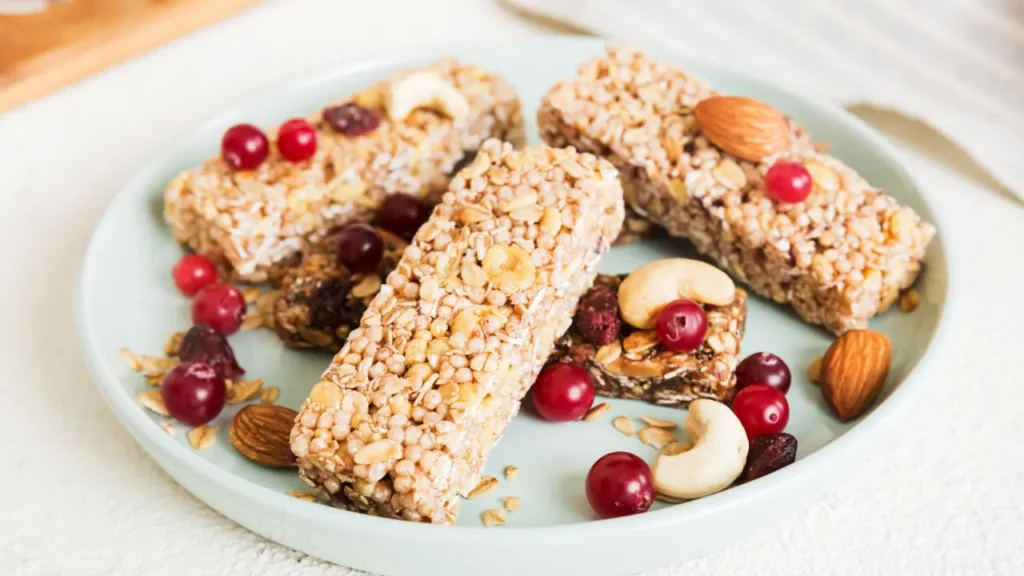
Another key reason why you should eat peanuts in winter is their protein content. Peanuts are an excellent source of plant-based protein, making them ideal for vegetarians and anyone looking to increase their protein intake. Protein is essential for muscle repair, growth, and maintaining energy levels.
Additionally, peanuts are a great source of healthy fats. These fats, particularly monounsaturated and polyunsaturated fats, provide sustained energy throughout the day. This makes peanuts an excellent choice for combating winter lethargy and fatigue.
4. Supports Heart Health
Cold weather often increases the risk of heart-related issues due to changes in blood pressure and circulation. Peanuts, with their heart-friendly nutrients, can help mitigate these risks. The monounsaturated fats in peanuts promote good cholesterol levels, while the resveratrol they contain supports healthy blood vessels.
Including peanuts in your winter diet not only keeps your heart healthy but also ensures better blood circulation during the colder months.
5. Good for Skin and Hair
Winters can be harsh on the skin, often leaving it dry and flaky. Peanuts, being rich in Vitamin E and biotin, play a significant role in maintaining skin health. Vitamin E acts as a natural moisturizer, while biotin supports skin hydration and elasticity.
Additionally, the healthy fats in peanuts nourish your hair from within, preventing winter-related dryness and promoting healthy growth.
Nutritional Benefits of Peanuts
Peanuts are loaded with essential nutrients that make them a superfood for winter. Here’s a quick breakdown of their nutritional profile:
- Protein: Essential for muscle repair and energy.
- Healthy Fats: Promote heart health and provide warmth.
- Vitamin E: Protects cells from damage and supports skin health.
- Magnesium: Aids in energy production and nerve function.
- Zinc: Boosts immunity and promotes wound healing.
Cultural Significance of Peanuts in Indian Winters
Peanuts, often called the “poor man’s almond,” are more than just a snack in India—they are a beloved symbol of winter. Affordable, nutritious, and versatile, they hold a special place in Indian households, particularly during the colder months. The cultural significance of peanuts in Indian winters goes beyond their health benefits; they are deeply woven into traditions, festivals, and family gatherings, making them an indispensable part of the season.
Peanuts in Indian Festivities: A Winter Tradition
Peanuts and Makar Sankranti
One of the most prominent examples of the cultural significance of peanuts in Indian winters is their association with Makar Sankranti, the harvest festival celebrated in January. During this time, people prepare and share peanut chikkis (brittles) made with jaggery, a symbol of the bounty of nature. These sweets are offered to guests, exchanged with friends, and even distributed as prasad (religious offerings) in temples.
The combination of peanuts and jaggery is believed to provide warmth and energy, making it a staple during the festival. Kite-flying, a popular activity during Makar Sankranti, is often accompanied by munching on roasted peanuts—a snack that keeps enthusiasts fueled throughout the day.
Peanuts and Lohri Celebrations
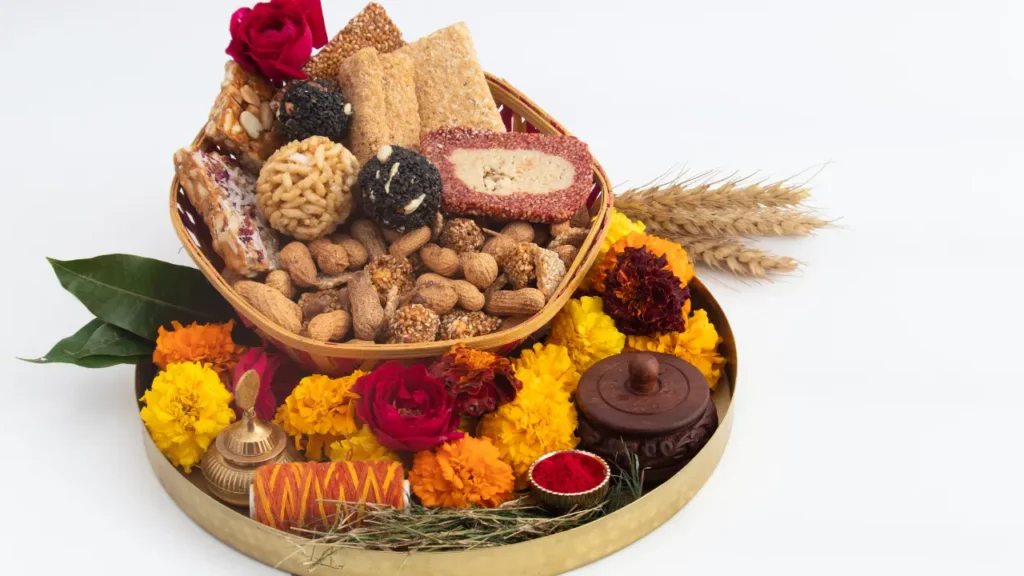
In northern India, Lohri marks the peak of winter and is celebrated with bonfires, dancing, and traditional foods. Peanuts, along with sesame seeds and popcorn, are considered an integral part of this festival. People toss these items into the bonfire as an offering to the fire god, symbolizing gratitude for the harvest.
Sharing roasted peanuts during Lohri gatherings fosters a sense of togetherness and community, emphasizing their cultural relevance during winter festivities.
Street Vendors and Roasted Peanuts
The aroma of freshly roasted peanuts wafting from roadside stalls is synonymous with Indian winters. For many, the act of buying a small packet of salted, roasted peanuts from a street vendor becomes a cherished seasonal ritual. These stalls are not just about food; they represent the warmth and simplicity of Indian street culture during winter.
Peanuts as a Social Snack in Indian Winters
Peanuts have always been a snack that brings people together. Whether it’s a family sitting around a bonfire or friends enjoying a casual evening chat, peanuts are often part of the scene. Their affordability ensures that they are accessible to everyone, creating a sense of inclusivity across all social strata.
During the cold months, the act of cracking open peanut shells and sharing them with others becomes a shared experience. This simple yet engaging activity adds to their cultural charm, making them more than just a snack.
Affordable and Accessible: A Snack for Everyone
One of the reasons why peanuts are so deeply ingrained in Indian culture is their affordability. While other nuts like almonds and cashews can be expensive, peanuts remain accessible to a wider population. This inclusivity ensures that people from all walks of life can enjoy their benefits, making them a true “people’s food.”
Why Peanuts Resonate With Indian Winters
The cultural significance of peanuts in Indian winters lies not just in their taste or health benefits but also in their ability to evoke memories and foster connections. Whether they are roasted and salted, turned into sweets, or added to savory dishes, peanuts have a way of bringing warmth and joy to every household.
Their role in festivals like Makar Sankranti and Lohri, their presence in street food culture, and their affordability ensure that they remain a cherished part of Indian winters year after year.
Delicious Ways to Enjoy Peanuts in Winter
Peanuts are a winter delight in India, offering warmth, nutrition, and a burst of flavor in every bite. From traditional sweets to hearty curries, their versatility makes them an integral part of the season’s culinary repertoire. Whether you enjoy them as a quick snack or incorporate them into rich dishes, there are countless delicious ways to enjoy peanuts in winter. Let’s explore some of these delightful options that highlight why peanuts are a winter favorite.
1. Roasted Peanuts: A Timeless Snack
Roasted peanuts are perhaps the most popular way to enjoy this nut during winter. The smoky aroma of freshly roasted peanuts fills the air in Indian streets and homes alike. Lightly salted or spiced, these crunchy snacks are a perfect companion to a hot cup of tea on a chilly evening.
To make them at home, simply roast raw peanuts in a dry pan until they turn golden brown. Add a pinch of salt, chili powder, or even a squeeze of lime for an extra zing. Their simplicity and comforting warmth make roasted peanuts a quintessential winter snack.
2. Peanut Chikki: A Festive Sweet
One of the most delicious ways to enjoy peanuts in winter is by indulging in peanut chikki, a traditional Indian brittle made with peanuts and jaggery. Commonly enjoyed during Makar Sankranti, this sweet treat combines the nutty flavor of peanuts with the caramel-like taste of jaggery.
Rich in nutrients and energy, peanut chikki is both delicious and healthy. It’s easy to prepare at home with just two ingredients—roasted peanuts and melted jaggery. This crunchy sweet is perfect for satisfying your sweet tooth while staying energized during cold days.
3. Peanut Ladoos: A Wholesome Treat
Peanut ladoos are another popular sweet that’s both healthy and easy to prepare. These round, bite-sized treats combine the goodness of peanuts with jaggery or sugar, making them a great source of energy and warmth.
To make peanut ladoos, grind roasted peanuts into a coarse powder, mix them with melted jaggery, and roll them into small balls. These ladoos are perfect for a quick snack or dessert, and they store well for days, making them a convenient option during busy winter months.
4. Peanut Butter: A Versatile Spread
Peanut butter is a modern twist on traditional peanuts, offering a creamy and versatile ingredient for your winter meals. Spread it on warm toast for breakfast, mix it into smoothies for added protein, or use it as a dip for fruits and veggies.
Homemade peanut butter is easy to make by blending roasted peanuts with a bit of salt and honey. This natural spread not only tastes great but also provides the healthy fats and nutrients you need to stay active during winter.
5. Peanut Curries: Hearty and Flavorful
Peanuts are not just for snacks and sweets—they also make an excellent addition to savory dishes. In many Indian households, peanuts are ground into a paste to create rich, flavorful curries that pair perfectly with rice or rotis.
For instance, peanut curry from Maharashtra, made with ground peanuts, coconut, and spices, is a warming dish that’s perfect for winter lunches. The creamy texture and nutty flavor of peanuts enhance the taste of these curries, making them a comforting choice for cold days.
6. Peanut Chutneys: A Tangy Side
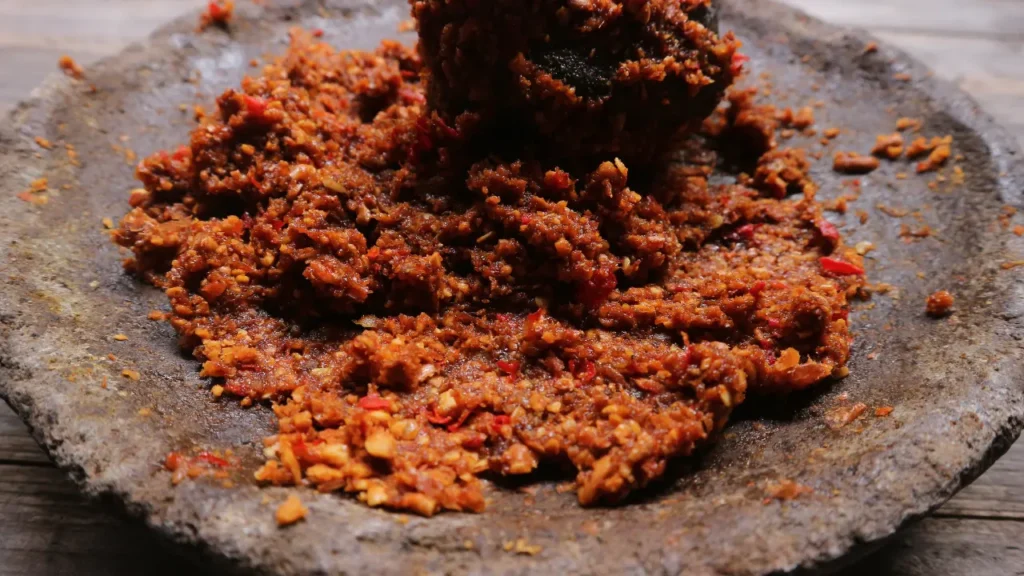
Peanut chutneys are a delicious accompaniment to a variety of dishes, from dosas and idlis to parathas and rice. Made with roasted peanuts, tamarind, and spices, this tangy chutney is both flavorful and nutritious.
To prepare peanut chutney, blend roasted peanuts with garlic, green chilies, tamarind, and salt. The resulting chutney is versatile and can be adjusted to suit your spice preference. It’s a quick and easy way to add a burst of flavor to your meals.
7. Peanut Mixtures: A Crunchy Snack
For those who love savory snacks, peanut mixtures are among the most delicious ways to enjoy peanuts in winter. These mixtures, often sold in Indian markets, combine roasted peanuts with puffed rice, fried curry leaves, and a mix of spices.
You can easily make this at home by mixing roasted peanuts with your favorite ingredients, such as sev, chivda, or masala spices. This crunchy snack is perfect for munching on during cold evenings or while watching your favorite winter shows.
8. Peanut Milkshakes and Smoothies: A Healthy Beverage
Peanuts can also be used to create delicious beverages like milkshakes and smoothies. Peanut milkshakes, made by blending peanut butter with milk, bananas, and a touch of honey, are not only delicious but also packed with protein and energy.
For a winter twist, try adding a pinch of cinnamon or nutmeg to your peanut smoothie. These drinks are an excellent way to enjoy the health benefits of peanuts while staying hydrated and energized.
9. Peanut Halwa: A Decadent Dessert
Halwa is a beloved Indian dessert, and adding peanuts to it creates a rich and nutty variation. Peanut halwa, made with roasted peanuts, ghee, sugar, and milk, is a warm, indulgent treat that’s perfect for cold winter nights.
The creamy texture and sweet flavor of peanut halwa make it a crowd-pleaser. Serve it warm for a dessert that will leave your family asking for seconds. Recipe
10. Peanuts in Bhel Puri: A Street Food Twist
Bhel puri, a popular Indian street food, gets an extra crunch and flavor boost when roasted peanuts are added. This tangy and spicy snack, made with puffed rice, sev, chutneys, and fresh vegetables, becomes even better with the nutty addition of peanuts.
Enjoying bhel puri with peanuts is a great way to combine the fun of street food with the health benefits of peanuts during winter.
Precautions While Consuming Peanuts
While there are numerous reasons why you should eat peanuts in winter, moderation is key. Here are a few precautions to keep in mind:
- Allergies: If you are allergic to peanuts, avoid them completely.
- Overeating: Peanuts are calorie-dense, so excessive consumption may lead to weight gain.
- Quality: Always choose fresh, good-quality peanuts to avoid any adverse effects.
Fun Facts About Peanuts
- Peanuts are not true nuts—they belong to the legume family.
- India is one of the largest producers of peanuts, making them a staple in Indian diets.
- Peanuts are an excellent source of plant-based protein, suitable for vegetarians.
Also Read: Importance of Sleep in Productivity: The Shocking Truth You Can’t Ignore!
Why You Should Add Peanuts to Your Diet
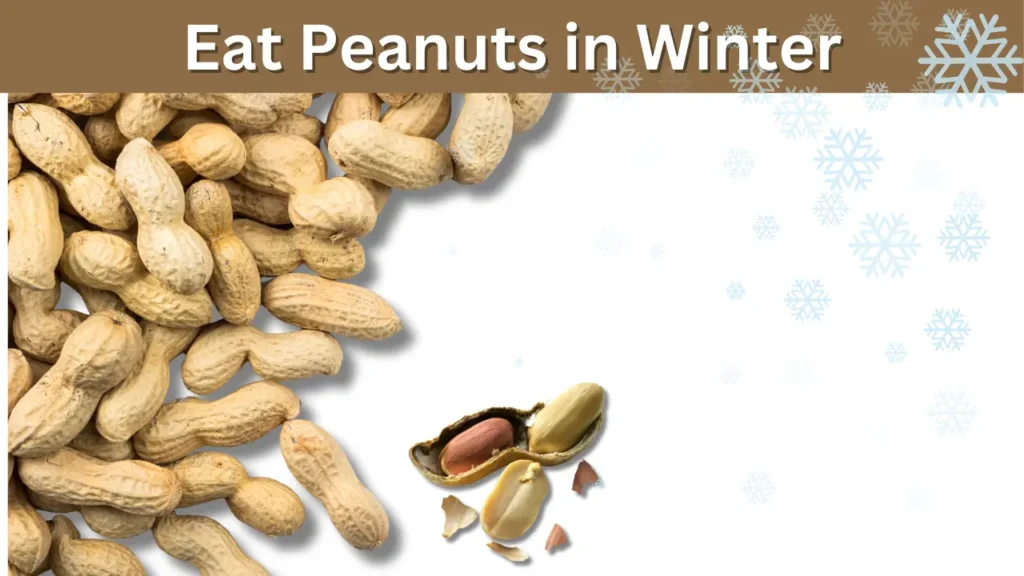
The reasons why you should eat peanuts in winter are not just limited to their nutritional benefits. Their ability to provide warmth, energy, and immunity support makes them an indispensable part of any winter diet. Whether consumed as a snack, in sweets, or incorporated into meals, peanuts are a versatile food that caters to both health and taste.
Conclusion
Peanuts are a winter superfood that offers numerous benefits, from boosting immunity and providing energy to supporting skin and heart health. Their affordability, availability, and cultural significance make them a beloved winter staple in India. By including peanuts in your diet, you can enjoy their health benefits while savoring their delightful taste.
So this winter, embrace the warmth and nutrition of peanuts. With so many reasons why you should eat peanuts in winter, there’s no better time to make them a part of your daily routine.
